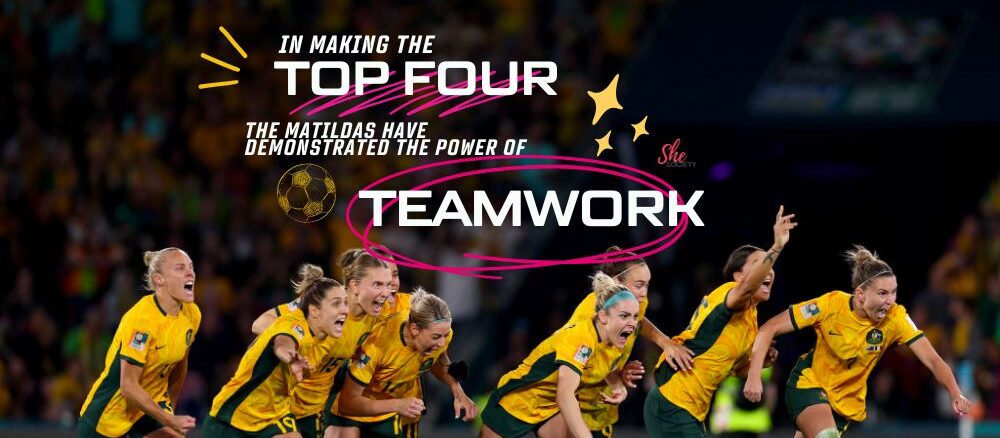
Thanks to a Collective Bargaining Agreement (CBA), the Matildas have played in this World Cup with an advantage stronger than even Sam Kerr’s long-range striking.
Australia’s national teams, represented by the players’ union, Professional Footballers Australia (PFA), signed a CBA with Football Australia in 2019 that established equal pay between the Socceroos and Matildas. This makes the Matildas one of the only sides in the 2023 World Cup playing with equal pay and equal access to the same off-field benefits as the men’s side.
The Matildas went into this tournament ranked tenth and made Australian footballing history by securing a spot in the semi-finals. Now in their first World Cup since receiving equal pay, they’re playing for third, having been able to focus 100% of their energy on being professional footballers.
A far cry from 2010 when they won the Asia Cup and had to go back to their part-time jobs.
By contrast, the recently defeated Olympic champions Canada, were mired in disputes with their Federation over working and pay conditions — forcing the team to engage in what Canadian midfielder Sophie Schmidt referred to as “compartmentalization”, to try and focus on the match.
Senior Associate in Industrial and Employment Law, El Leverington said that win, lose or draw the Matildas’ standing as an institution in Australian sport is cemented.
“By being treated as professionals and equals in their jobs, it has enabled the Matildas to focus on the game.
“Collective bargaining is a powerful tool that all workers can use, not just international soccer stars. A CBA is achieved when working people, through their unions, negotiate an agreement with their employer to determine their terms of employment. A CBA includes pay, benefits, hours of work, leave, discrimination, health and safety, and work life balance. These conditions are essential to delivering equality for women in the workplace and on football field, where we’re seeing the Matilads shine.
“There are only a handful national teams competing in this year’s World Cup that have secured collective agreements that deliver world-class conditions and standards. Each of those countries, including Australia, has achieved these standards through players fighting together for equal recognition often over decades.
“In the case of the Matildas this was won through their collective industrial action in their two-month long strike in 2015.
“This was the first time a national sports team in Australia went on strike. Just like on the pitch the Matildas stuck together, refused to back down and got the result.
“Collective bargaining is a how workers win better pay and conditions, and the best way to fight for equality in the workplace,” Ms Leverington said.
The Matildas are making history, and their actions don’t end with their team. In a video they released ahead of the 2023 World Cup, the Matildas are lobbying for their competitors to be afforded the same basic rights and access to collective bargaining, as well as calling out FIFA for the prize money of the world cup still not being equal to that of the men’s.
Changes to the Fair Work Act 2009 (Cth) (Fair Work Act) took effect in June this year through the Fair Work Legislation Amendment (Secure Jobs, Better Pay) Act 2022 (Cth) with the effect that:
- employees can now appeal an employer’s refusal to grant a flexible working arrangement and can take it to the Fair Work Commission; and
- there is now a greater obligation on employers to consider requests to extend unpaid parental leave beyond 12 months and to only refuse on specific grounds.
Other amendments to the Fair Work Act include several changes to the processes for making enterprise agreements that will give workers and unions better negotiating power.
“Changes such as increasing access to supported bargaining and a greater focus on cooperative bargaining when employers with the same business interest are bargaining together for a single enterprise agreement are making it easier to fight for equality and fair treatment across industries.
“It’s safe to say that the Matildas are setting the standard for equality in football and will go down in history for what they have done for women’s sport, with their advocacy for themselves and others to get fair treatment and equal pay,” Ms Leverington said.
Feature Image photo by Elsa – FIFA/FIFA via Getty Images
SheSociety is a site for the women of Australia to share our stories, our experiences, shared learnings and opportunities to connect.

Leave a Reply